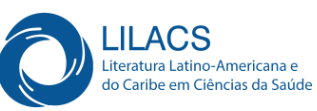ESTRÉS, AFRONTAMIENTO Y ESTADOS AFECTIVOS EM PROFESIONALES DE LA SALUD DURANTE LA PANDEMIA DE COVID-19
DOI:
https://doi.org/10.5433/2236-6407.2022.v13.46806Palabras clave:
COVID-19, trastornos por estrés postraumático, afecto, personal de salud, enfrentamientoResumen
La pandemia de COVID-19 estableció un período de crisis global con impactos en la salud mental de toda la población, en particular de los profesionales de la salud de primera línea. El objetivo fue rastrear la presencia de síntomas de Trastorno de Estrés Postraumático en profesionales de salud de primera línea y verificar su asociación con estrategias de afrontamiento y estados afectivos durante la pandemia de COVID-19 en Brasil. Se realizó un estudio longitudinal online con 51 profesionales de salud de primera línea residentes de las cinco regiones de Brasil que respondieron los siguientes instrumentos: Escala de Impacto de Evento, Escala de Afectos Positivos y Negativos, Escala de Afrontamiento Ocupacional y cuestionario sobre experiencia personal frente a la pandemia. Los análisis de comparación de proporciones y medias, así como análisis de correlaciones, mostró una alta tasa de síntomas relacionados con el Trastorno de Estrés Postraumático en los tres momentos de recolección de datos, con correlaciones significativas con los afectos negativos, pero no con las estrategias de afrontamiento. Se destaca el mayor riesgo para el desarrollo o empeoramiento de trastornos mentales en estos profesionales, en particular el estrés postraumático y las dificultades de regulación emocional, que requieren acciones urgentes de atención psicológica.
Descargas
Citas
Caiuby, A.V.S., Lacerda, S.S., Quintana, M.I., Torii, T.S., & Andreoli, S.B. (2012). Adaptação transcultural da versão brasileira da Escala do Impacto do Evento-Revisada (IES-R). Cadernos de Saúde Pública, 28(3), 597-603. https://doi.org/10.1590/S0102-311X2012000300019
Chew, N.W.S., Lee, G.K.H., Tan, B.Y.Q., Jing, M., Goh, Y., Ngiam, N.J.H., … Sharma, V.K. (2020). A multinational, multicentre study on the psychological outcomes and associated physical symptoms amongst healthcare workers during COVID-19 outbreak. Brain Behav Immun, 88, 559-565. https://doi.org/10.1016/j.bbi.2020.04.049
Da Silva Neto, R.M., Benjamim, C.J.R., Carvalho, P.M.M., & Neto, M.L.R. (2021). Psychological effects caused by the COVID-19 pandemic in health professionals: A systematic review with meta-analysis. Progress in neuro-psychopharmacology & biological psychiatry, 104, 110062. https://doi.org/10.1016/j.pnpbp.2020.110062
Dekel, S., Peleg, T., & Solomon, Z. (2013). The Relationship of PTSD to Negative Cognitions: A 17-Year Longitudinal Study. Psychiatry: Interpersonal and Biological Processes, 76(3), 241-255. https://doi.org/10.1521/psyc.2013.76.3.241
Edwards, E.R, & Wupperman, P. (2019). Research on emotional schemas: A review of findings and challenges. Clinical Psychologist, 23(1),3-14. https://doi.org/10.1111/cp.12171
Emhan, A., Elkefi, S., Asan, O. (2022). Predictors of Healthcare Professionals' Work Difficulty Perception during the COVID-19 Pandemic: Study of Work Environment in a Pandemic Hospital. Int. J. Environ. Res. Public Health, 19(9), 5174. https://doi.org/10.3390/ijerph19095174
Fundação Oswaldo Cruz. (2022). Saúde mental dos profissionais da saúde na pandemia da COVID-19 em MS e DF: relatório parcial descritivo do DF. Brasília: Fundação Oswaldo Cruz. Recuperado de https://www.arca.fiocruz.br/handle/icict/51235
Herman J. (2015). Trauma and recovery: The aftermath of violence—from domestic abuse to political terror. New York: Basic Books.
Holmes, E.A, O'Connor, R.C., Perry, V.H., Tracey, I., Wessely, S., Arseneault. L., … Bullmore, E. (2020). Multidisciplinary research priorities for the COVID-19 pandemic: a call for action for mental health science. Lancet Psychiatry, 7(6), 547-560. https://doi.org/10.1016/S2215-0366(20)30168-1
Kar, N., Kar, B., & Kar, S. (2021). Stress and coping during COVID-19 pandemic: Result of an online survey. Psychiatry research, 295, 113598. https://doi.org/10.1016/j.psychres.2020.113598
Lee, S. M., Kang, W. S., Cho, A.-R., Kim, T., & Park, J. K. (2018). Psychological impact of the 2015 MERS outbreak on hospital workers and quarantined hemodialysis patients. Comprehensive Psychiatry, 87, 123-127. https://doi.org/10.1016/j.comppsych.2018.10.003
Li, J., Su, Q., Li, X., Peng, Y., & Liu, Y. (2021). COVID-19 negatively impacts on psychological and somatic status in frontline nurses, Journal of Affective Disorders, 294, 279-285. https://doi.org/10.1016/j.jad.2021.07.031
Nunes, L.Y.O., Campos, L.L.D., Júnior, R.C.R., Behar, C.B., & Santos, P.P.P. (2019). Psychometric analysis of PANAS in Brazil. Cienc Psicológicas, 13(1),45-55. https://doi.org/10.22235/cp.v13i1.1808
Ornell, F., Halpern, S.C., Kessler, F.H.P., & Narvaez, J.C.M. (2020). The impact of the COVID-19 pandemic on the mental health of healthcare professionals. Cadernos de Saúde Pública, 36(4), e00063520. https://doi.org/10.1590/0102-311X00063520
Pigati, P.A.S., Righetti, R.F., Nisiaymamoto, B.T.C., Saraiva-Romanholo, B.M., Tibério, I.F.L.C. (2022). Resilience and its impact on the mental health of physiotherapists during the COVID-19 pandemic in São Paulo, Brazil. Journal of Affective Disorders, 310, 422-428. https://doi.org/10.1016/j.jad.2022.05.049
Pinheiro, F.A., Tróccoli, B.T., & Tamayo, M.R. (2003). Coping measurement in occupational setting. Psicologia: Teoria e Pesquisa, 19(2), 153-158. https://doi.org/10.1590/S0102-37722003000200007
Santeiro, T.V., Yoshida, E.M.P., Peixoto, E.M., Rocha, G.M.A., & Zanini, D.S. (2016). Diferenças conceituais e empíricas entre eficácia adaptativa e coping. Estudos Interdisciplinares em Psicologia, 7(1), 02-19. https://doi.org/10.5433/2236-6407.2016v7n1p02
Serpa, A.L.O., Pinto, A.L.B., Diaz, A.P., Romano-Silva, M.A., Costa, D.S., Joaquim, R.M, ... Malloy-Diniz, L.F. (2022). The mental health of Brazilian healthcare professionals during the COVID-19 pandemic: a longitudinal study. Brazilian Journal of Psychiatry, 44(4), 401-408. http://doi.org/10.47626/1516-4446-2021-2347
Silva, G.A.V., Silva, G.S.A., Silva, R.M., Andolhe, R., Padilha, K.G., & Costa, A.L.S. (2017). Estresse e coping entre profissionais de enfermagem de unidades de terapia intensiva e semi-intensiva. Revista de Enfermagem UFPE On-Line, 11(2), 922-931. Recuperado de https://periodicos.ufpe.br/revistas/revistaenfermagem/article/viewFile/13461/16153
Silva-Costa, A., Griep, R.H., & Rotenberg, L. (2022). Percepção de risco de adoecimento por COVID-19 e depressão, ansiedade e estresse entre trabalhadores de unidades de saúde. Cadernos de Saúde Pública, 38(3), e00198321. https://doi.org/10.1590/0102-311X00198321.
Steck, A., & Steck, B. (2016). Brain and mind: Subjective experience and scientific objectivity. Switzerland: Springer International Publishing.
Steinmetz, L.C.L., Herrera, C.R., Fong, S. B., & Godoy, J.C. (2021). A Longitudinal Study on the Changes in Mental Health of Healthcare Workers during the COVID-19 Pandemic. Psychiatry, 85(1), 56-71. https://doi.org/10.1080/00332747.2021.1940469
Vagni, M., Maiorano, T., Giostra, V., & Pajardi, D. (2020). Coping With COVID-19: Emergency Stress, Secondary Trauma and Self-Efficacy in Healthcare and Emergency Workers in Italy. Frontiers in psychology, 11, 566912. https://doi.org/10.3389/fpsyg.2020.566912
Van Steenkiste, E., Schoofs, J., Gilis, S., & Messiaen, P. (2022). Mental health impact of COVID-19 in frontline healthcare workers in a Belgian Tertiary care hospital: a prospective longitudinal study. Acta clinica Belgica, 77(3), 533-540. https://doi.org/10.1080/17843286.2021.1903660
Wang, C., Pan, R., Wan, X., Tan, Y., Xu, L., McIntyre, R.S., … Ho, C. (2020). A longitudinal study on the mental health of general population during the COVID-19 epidemic in China. Brain Behav Immun, 87, 40-48. https://doi.org/10.1016/j.bbi.2020.04.028
Watson, D., Clark, L. A., & Tellegen, A. (1988). Development and validation of brief measures of positive and negative affect: the PANAS scales. Journal of personality and social psychology, 54(6), 1063-1070. https://doi.org/10.1037/0022-3514.54.6.1063
World Health Organization (2022). ICD-11, International Classification of Diseases (11th ed. rev.). Geneva: World Health Organization.
Wu, P., Fang, Y., Guan, Z., Fan, B., Kong, J., Yao, Z., Liu, X., Fuller, C. J., Susser, E., Lu, J., & Hoven, C. W. (2009). The psychological impact of the SARS epidemic on hospital employees in China: Exposure, risk perception, and altruistic acceptance of risk. Canadian Journal of Psychiatry. Revue Canadienne De Psychiatrie, 54(5), 302-311. https://doi.org/10.1177/070674370905400504
Zhang, N. (2022). Risk perception, mental health distress, and flourishing during the COVID-19 pandemic in China: The role of positive and negative affect. Curr Psychol,1-9. Advance online publication. https://doi.org/10.1007/s12144-021-02624-4
Zhou, T., Guan, R., & Sun, L. (2021). Perceived organizational support and PTSD symptoms of frontline healthcare workers in the outbreak of COVID-19 in Wuhan: The mediating effects of self-efficacy and coping strategies. Applied psychology. Health and well-being, 13(4), 745-760. https://doi.org/10.1111/aphw.12267
Descargas
Publicado
Cómo citar
Número
Sección
Licencia
Derechos de autor 2022 Estudos Interdisciplinares em Psicologia

Esta obra está bajo una licencia internacional Creative Commons Atribución 4.0.
Estudos interdisciplinares em Psicologia adota a licença CC-BY, esta licença permite que os reutilizadores distribuam, remixem, adaptem e criem a partir do material em qualquer meio ou formato, desde que a atribuição seja dada ao criador. A licença permite o uso comercial.
Este obra está licenciado com uma Licença Attribution 4.0 International (CC BY 4.0)




















